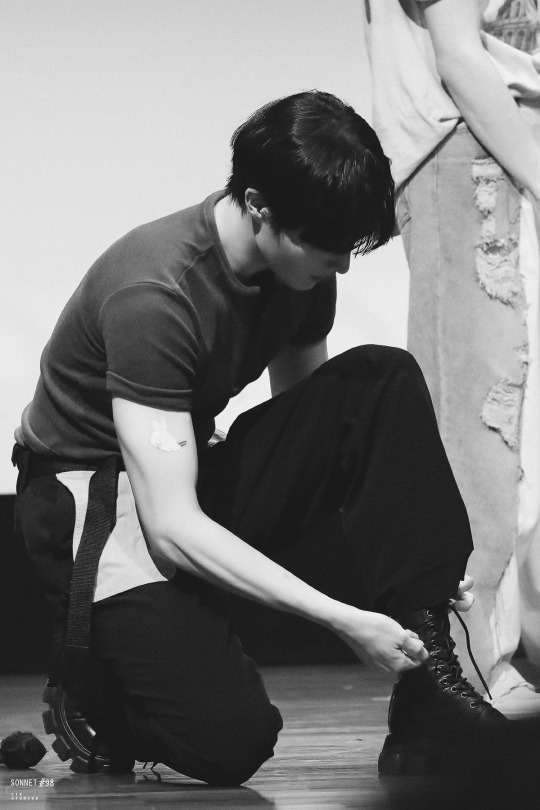#sonnet 98
Video
My Passion for Trees, 2017
Sonnet 98
Clip: tayryn
6 notes
·
View notes
Text
0 notes
Text

sonnet 98 by Kim Addonizio
576 notes
·
View notes
Text




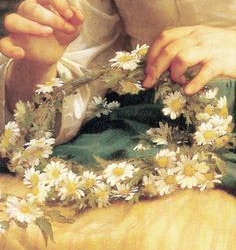
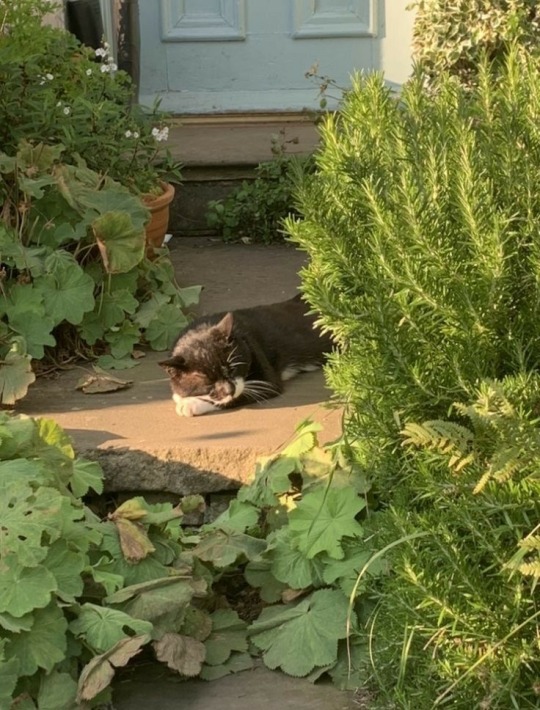



Sonnet 98; By William Shakespeare
From you have I been absent in the spring,
When proud-pied April, dressed in all his trim,
Hath put a spirit of youth in everything,
That heavy Saturn laughed and leaped with him.
Yet nor the lays of birds, nor the sweet smell
Of different flowers in odour and in hue,
Could make me any summer’s story tell,
Or from their proud lap pluck them where they grew:
Nor did I wonder at the lily’s white,
Nor praise the deep vermilion in the rose;
They were but sweet, but figures of delight
Drawn after you, – you pattern of all those.
Yet seem’d it winter still, and, you away,
As with your shadow I with these did play.
#dark acadamia aesthetic#dark academia#light academia#light acadamia aesthetic#classic academia#quotes#romantic aesthetic#book quotes#poetry#books & libraries#cottagecore#naturecore moodboard#naturecore#light academia quotes#light academia aesthetic#light academia moodboard#green moodboard#moodboard#poets#spring#spring moodboard#poetry moodboard#shakespeare#poet aesthetic#cottagecore poems#poem#poets corner#green aesthetic#victorian aesthetic#flower aesthetic
305 notes
·
View notes
Text
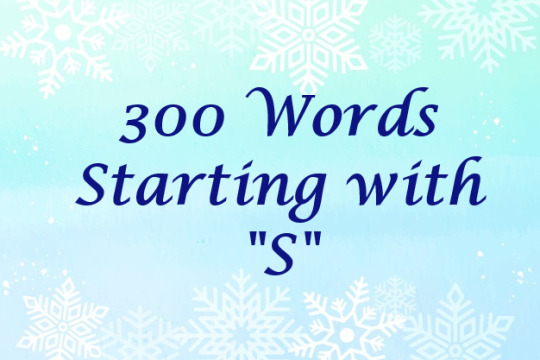
1. Sabotage
2. Sacrament
3. Sacred
4. Sacrifice
5. Sacrilege
6. Sadness
7. Safe
8. Safeguard
9. Sailor
10. Saltwater
11. Salvage
12. Salvation
13. Sanctuary
14. Sand
15. Sanity
16. Sapphire
17. Sarcasm
18. Satellite
19. Satisfaction
20. Saturday
21. Savage
22. Save
23. Saviour
24. Scalding
25. Scale
26. Scandalous
27. Scare
28. Scarlet
29. Scarred
30. Scattered
31. Scenery
32. Scent
33. Scholar
34. School
35. Science
36. Scrapbook
37. Scratch
38. Scream
39. Scribe
40. Scrolls
41. Sculptor
42. Scythe
43. Sea
44. Seance
45. Search
46. Seashells
47. Seatbelts
48. Seclusion
49. Second
50. Secret
51. Security
52. Seduce
53. Seeds
54. Seeking
55. Selfish
56. Senile
57. Sensational
58. Senseless
59. Sentences
60. Sentimental
61. Separate
62. Serendipity
63. Serpent
64. Servant
65. Shackle
66. Shadow
67. Shallow
68. Shame
69. Shameless
70. Shampoo
71. Shards
72. Share
73. Shatter
74. Shaving
75. Sheet
76. Shelter
77. Shenanigans
78. Shield
79. Shifting
80. Shine
81. Shirt
82. Shock
83. Shooting
84. Short
85. Shoulder
86. Shower
87. Shrieks
88. Shrine
89. Shrouded
90. Shuffle
91. Shy
92. Sibling
93. Sick
94. Sight
95. Sightseeing
96. Signal
97. Signed
98. Silence
99. Silhouette
100. Silk
101. Silver
102. Similarities
103. Simplicity
104. Sincere
105. Sinful
106. Sing
107. Singularity
108. Sinister
109. Sinking
110. Size
111. Skeleton
112. Sketch
113. Skies
114. Skiing
115. Skipping
116. Slapped
117. Slave
118. Slaying
119. Sleepless
120. Sleepover
121. Slice
122. Slick
123. Slide
124. Slipping
125. Slither
126. Sloppy
127. Slow
128. Small
129. Smile
130. Smirk
131. Smitten
132. Smoke
133. Smooth
134. Smudge
135. Snacks
136. Snapped
137. Snapshot
138. Snared
139. Snarling
140. Sneak
141. Snow
142. Snowblind
143. Snowbound
144. Snuggle
145. Soaked
146. Soap
147. Soar
148. Society
149. Soft
150. Solace
151. Solar
152. Soldiers
153. Solemn
154. Solitaire
155. Solitude
156. Solution
157. Somebody
158. Someday
159. Somewhere
160. Sonnets
161. Soothing
162. Sorcerer
163. Sorrow
164. Sorry
165. Soul
166. Soulmate
167. Sound
168. Sourpuss
169. Souvenir
170. Space
171. Spark
172. Sparkle
173. Speak
174. Special
175. Specialists
176. Spectator
177. Speechless
178. Speed
179. Spellbound
180. Spending
181. Sphinx
182. Spice
183. Spies
184. Spiral
185. Spirit
186. Split
187. Spoils
188. Spontaneous
189. Spooky
190. Spooning
191. Spotlight
192. Spring
193. Spying
194. Square
195. Squeak
196. Squeezed
197. Stab
198. Stability
199. Stage
200. Stagnant
201. Stained
202. Stairway
203. Stakeout
204. Stalemate
205. Stalker
206. Stamina
207. Stance
208. Stand
209. Standard
210. Star
211. Star-crossed
212. Stargazing
213. Starting
214. Startled
215. Starve
216. Static
217. Stay
218. Steady
219. Steal
220. Stealth
221. Steel
222. Stereotypes
223. Stickers
224. Stigmatize
225. Stitches
226. Stoic
227. Stole
228. Stone
229. Stop
230. Storm
231. Stranded
232. Strange
233. Strawberries
234. Stray
235. Street
236. Strength
237. Stress
238. Stretching
239. Stricken
240. Strictly
241. Strike
242. Strings
243. Striving
244. Strolling
245. Struggle
246. Stubble
247. Stubborn
248. Stuck
249. Students
250. Study
251. Stupid
252. Subconscious
253. Subdued
254. Subject
255. Subliminal
256. Submerge
257. Submission
258. Substitute
259. Subtle
260. Subway
261. Success
262. Succumb
263. Suddenly
264. Suffer
265. Suggestive
266. Summer
267. Summon
268. Sunbathing
269. Sunbeams
270. Sunburn
271. Sunflower
272. Sunkissed
273. Sunlight
274. Sunrise
275. Superficial
276. Superhero
277. Superiority
278. Supernatural
279. Supernova
280. Superstition
281. Support
282. Surface
283. Surprise
284. Surrender
285. Surveillance
286. Survival
287. Swagger
288. Swamp
289. Swapped
290. Sway
291. Sweat
292. Sweet
293. Swimming
294. Switchblade
295. Sword
296. Sworn
297. Symbol
298. Sympathy
299. Synchronicity
300. Synergy
#prompt list#writing prompt list#prompts#writing prompt#writing prompts#story prompts#story prompt#writing inspiration#writing#writblr#writblur
28 notes
·
View notes
Text
I have worked as a blood technician and medical researcher since 1967 in South Africa, where, according to one study based in the Gauteng province, 1 in 4 women have been raped in their lifetime. Crime statistics released by the South African Police Service in 2013 suggest that rape is grossly underreported. For decades, I have witnessed the reality of these grim statistics first-hand while treating survivors of this unspeakable act.
While the incidence of rape is extremely high in South Africa, it is not an exception. Somewhere in the United States of America a woman is raped every 98 seconds. The United Nations recognizes that sexual violence is a severely underreported crime and that similar statistics can be found globally. As rape statistics climb to staggering rates and victims continue to be overlooked by justice systems around the world, a radical response to sexual violence is needed.
It was a patient who prompted me to pursue such a response early in my career. Late one night in 1969, I was tending to a woman who had just survived an attack when she left me with words I would never forget.
Shaking in terror with tears running down her face, she said:
“If only I had teeth down there.”
I pledged to her that one day, I would do something to help others in her situation. Now several decades later, I intend to fulfill this promise by transforming her idea into a device designed to give women a stronger chance at escaping sexual assault and bring their attackers to justice.
3 notes
·
View notes
Text
23rd March
Sonnet 98 by William Shakespeare
Shakespeare’s sonnets are carefully measured, each line having ten syllables, a total of fourteen lines and concluding with a couplet at the end. The one concerns an anguished lover’s separation from the object of his affection during the spring, thereby removing his enjoyment of the season of growth and warmer days.
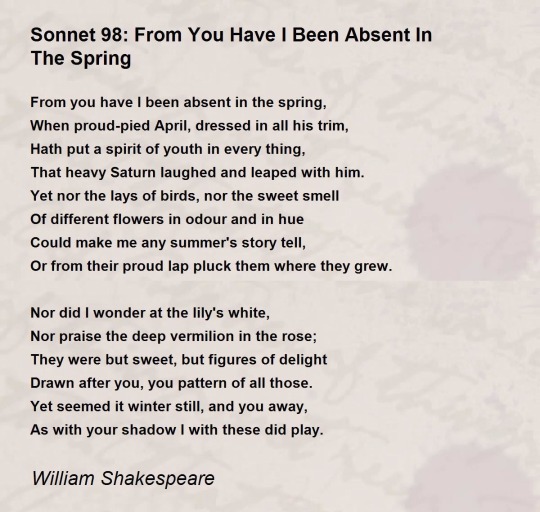
Source: Poem Hunter
Shakespeare’s sonnets are often bitter sweet, describing the contradictions, heartbreak and loss of romantic love. The author is rarely happy.
1 note
·
View note
Text
zum Frühjahrsbeginn....
Sonnet 98 By William Shakespeare
From you have I been absent in the spring, When proud-pied April, dressed in all his trim, Hath put a spirit of youth in everything, That heavy Saturn laughed and leaped with him. Yet nor the lays of birds, nor the sweet smell Of different flowers in odour and in hue, Could make me any summer’s story tell, Or from their proud lap pluck them where they grew: Nor did I wonder at the lily’s white, Nor praise the deep vermilion in the rose; They were but sweet, but figures of delight Drawn after you, – you pattern of all those. Yet seem’d it winter still, and, you away, As with your shadow I with these did play.
0 notes
Text
Sonnet 98
From you have I been absent in the spring,
When proud-pied April dress'd in all his trim
Hath put a spirit of youth in every thing
That heavy Saturn laugh'd and leap'd with him.
Yet nor the lays of birds nor the sweet smell
Of different flowers in odor and in hue
Could make me any summer's story tell.
Or from their proud lap pluck them while they grew;
Nor did I wonder at the lily's white,
Nor praise the deep vermilion in the rose;
They were but sweet, but figures of delight;
Drawn after you, you pattern of all those.
Yet seem'd it winter still, and, you away,
As with your shadow I with these did play.
William Shakespeare
Sonnet 98 by William Shakespeare is a poignant exploration of love, absence, and the enduring impact of a beloved's presence. Composed during the Renaissance, a period marked by a fascination with love poetry and the complexities of human emotions, this sonnet encapsulates the timeless themes that resonate across generations. The Shakespearean sonnet form, characterized by its distinct rhyme scheme and fourteen lines, provides a structured canvas for the poet to weave a narrative of emotional depth. In examining the intricate web of seasonal imagery, personification, and extended metaphor within Sonnet 98, we gain insight into the nuances of Shakespeare's portrayal of love and its profound influence on perception.
Seasonal imagery : "From you have I been absent in the spring,"
The speaker explicitly mentions the absence during spring, setting the seasonal context for the rest of the poem.
Personification : "When proud pied April, dressed in all his trim,"
The personification of April, dressing itself in vibrant colors, adds a lively and spirited quality to the season.
Mythological Allusion : "Hath put a spirit of youth in every thing, / That heavy Saturn laughed and leapt with him." The allusion to Saturn laughing and leaping with April signifies a temporary reprieve from the usual melancholy associated with Saturn, highlighting the transformative power of spring.
Nature's Beauty : "Nor did I wonder at the lily's white, / Nor praise the deep vermilion in the rose;"
The speaker acknowledges the beauty of nature but indicates a lack of wonder or appreciation, emphasizing the overshadowing effect of the absent person.
Floral Imagery : "They were but sweet, but figures of delight, / Drawn after you, you pattern of all those."
Flowers are acknowledged as sweet but are considered mere representations of the absent person, suggesting their unique beauty.
Extended Metaphor : "Yet seemed it winter still, and you away,"
The extended metaphor comparing the absence to winter conveys a lingering sense of cold and emptiness despite the vibrant spring surroundings.
Final Couplet
"Yet seemed it winter still, and you away,"
The chosen concluding line reinforces the central theme, emphasizing the lingering wintry feeling in the absence of the beloved during the vibrant season of spring.
"As with your shadow I with these did play."
The concluding lines emphasize the enduring impact of the absent person's shadow, even in the midst of the lively imagery associated with spring.
The first quatrain opens with the object pronoun “you”, rather than the subject pronoun “I”, so it is clear who is important to the speaker. This unusual syntax is an example of anastrophe. The Bard begins by telling the boy that, because the two are apart, he has been unable to enjoy spring. The beautiful days are tainted by the presence of the “heavy”, gloomy god, Saturn, — or Cronus in the Greek pantheon — who accompanied and spoilt April by having played and “leapt” with him.
Note that in line two April is described as “proud pied”, pied meaning vari-coloured. The alliterative “p"s and the long vowels emphasise the importance of this point.
The speaker explains that even the beauty of the flowers, with their colours and smells, couldn’t persuade him to take part in the pleasures of the season. Or as he says, “make me any summer’s story tell”.The flowers are personified as having a “proud lap”, from which the blooms could be picked if the speaker had the inclination.
The third quatrain continues with the Bard telling the Fair Youth that in past years he might have enjoyed the whiteness of the lily and the “deep vermillion of the rose. The whiteness symbolises purity and the vermillion passion.The beauty of the flowers has one source, the boy. Therefore, they are “figures of delight /Drawn after you”, and this fact distracts the speaker from the pleasure they could otherwise have brought.
There is a neat balance in the construction of lines nine and ten, both beginning with “Nor” and with similar syntax.The quatrain ends with a volta or “turn”, leading to a new thought.
The last two lines of the quatrain reinforce what has been said by explaining that nature draws its own beauty from the loveliness of the boy. For the speaker the absence of his lover makes the season winter. When he looks all he sees is “your shadow” — the beauty of the Fair Youth.
In Sonnet 98, Shakespeare utilizes the distinctive features of the Shakespearean sonnet to craft a nuanced exploration of love's impact on the human experience. The interplay of seasonal imagery, personification, and the structured rhyme scheme contributes to the enduring resonance of the poem. As the sonnet elegantly unfolds, it invites readers to reflect on the profound connection between love, nature, and the complexities of human emotion, showcasing Shakespeare's mastery in capturing the essence of the human condition.
#william shakespeare#sonnets#Mr W.H#poetry#litterature#england#tradition#love poem#seasons#beauty#immortality#nature
1 note
·
View note
Text
Shakespeare's Wife.
is it cringe to adore shakespeare? he may be my top ten poets/playwrights. i loovveddd learning and reading about him in my literature classes.
sonnet 18/98.
0 notes
Note
You give really good hugs. *nuzzles neck* What Sonnet Number was it? 🍒
I read to you one of my favorites, sonnet 98… *chuckles and smooths hair* Shall I recite it to you again?
1 note
·
View note
Text
Scansion generator

#SCANSION GENERATOR GENERATOR#
#SCANSION GENERATOR PORTABLE#
Version of the Morpheus morphological analyzer. The macronization is performed using a part-of-speech taggerĭependency Treebank, and with macrons provided by a customized The expected accuracy on an average classical text isĮstimated to be about 98% to 99%. This automatic macronizer lets you quickly mark all the long vowels Maintenance and continuous development! Any amount is very much Time-saving, please consider making a donation, to support If you use the macronizer regularly and find it helpful and When tested on a couple of books of theĪeneid (from the eminent Dickinson CollegeĬommentaries), this has been demonstrated to cut the number ofĮrroneous vowel lengths in half! Currently, dactylic hexametersĪnd elegiac distichs are supported other meters may be added.Īlso, I have now added a PayPal donation button: July 2016: I am happy to announce that the Macronizer now isĪble to take the meter into account when guessing the vowel October 2016: The performance on texts written in all uppercase letters has been greatly improved. May 2017: I have now made the macronized text editable, which means that it will now be much easier to correct typos or misspellings while proofreading the text. Ĭompare result with correctly macronized input text.Īugust 2017: More meters added! The macronizer can now handle hendecasyllables as well as distichs of iambic trimeters and dimeters ( Beātus ille quī procul negōtiīs.). To improve the result, try to scan the text as. Through these devices our goal is to reach a wider audience and engage people to reconnect with poetry.Note: In order to avoid time out from the server, input longer than 50000 characters will be truncated.
#SCANSION GENERATOR PORTABLE#
and a “poetry box” (la boîte à poésie), a portable version of the original idea that can be demonstrated in public events (based on Raspberry Pi components).
#SCANSION GENERATOR GENERATOR#
The generator uses this analysis to produce random sonnets, with different possible structures, respecting the rules of French versification (the code and the resources used, especially the sonnet database, are open source and freely available for research).Ī series of “side products” have been produced from the project, including: In order to do this, the first step is to get a phonetic transcription of the last word of each verse, but this is not enough : a series of rules had thus to be defined to get a proper analysis of rhyme from the phonetic transcription of the last word of each verse. The project requires to get access to a formal representation of rhymes. Each sonnet is encoded in a XML format along with related metadata, and a TEI version of the database is available. Oupoco is currently based on a collection of around 4000 sonnets from a large number of authors from the 19 th century, and this database is regularly expanding (thanks to collaboration, especially with the Bibliothèque nationale de France). It is thus very different from the numerous projects dedicated to the pure generation of poetry, being with symbolic or neural methods. From this point of view, even if the project is intended to generate new sonnets, it is largely based on the development of analysis tools able to identify the scansion, the rhyme and the structure of the original sonnets. The challenge is thus more complex than the one proposed originally by Queneau since our sonnets do not have the same scansion and rhyme. To overcome this problem, we developed the Oupoco project, aiming at proposing a sonnet generator based on the recombination of a large collection of 19th century French sonnets. It would be tempting to develop a computer-based version of Queneau’s work, but Queneau’s book is still under copyright, and it is by definition limited to its ten original sonnets. Queneau’s book is a collection of ten sonnets which verses can be freely recombined to form new poems. Oupoco (L’ouvroir de poésie combinatoire) is a project taking inspiration from RaymondQueneau's book Cent mille mille milliards de poèmes, published in 1961.

0 notes
Photo

To the Nile - John Keats [1795-1821]
Son of the old Moon-mountains African!
Chief of the Pyramid and Crocodile!
We call thee fruitful, and that very while
A desert fills our seeing’s inward span:
Nurse of swart nations since the world began,
Art thou so fruitful? or dost thou beguile
Such men to honour thee, who, worn with toil,
Rest for a space ‘twixt Cairo and Decan?
O may dark fancies err! They surely do;
‘Tis ignorance that makes a barren waste
Of all beyond itself. Thou dost bedew
Green rushes like our rivers, and dost taste
The pleasant sunrise. Green isles hast thou too,
And to the sea as happily dost haste.
“The Wednesday before last, Shelley, Hunt and I, wrote each a sonnet on the river Nile: some day you shall read them all.” – Life, Letters &c., 1848, Volume 1, page 98
0 notes
Text
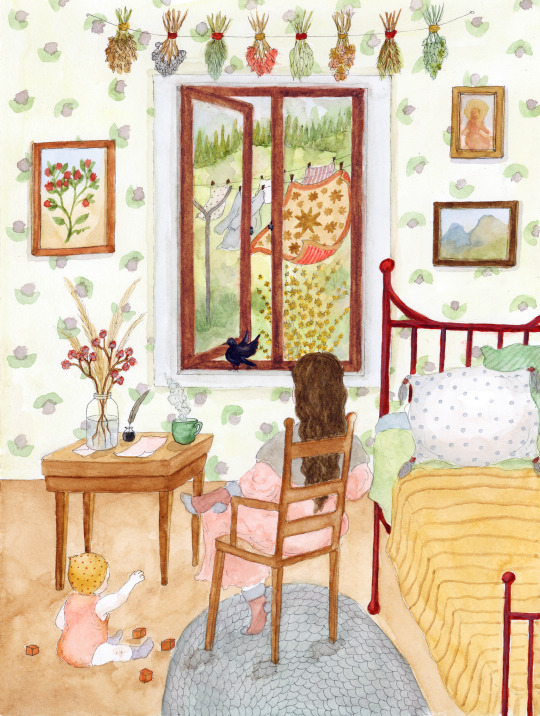
April Through the Window (2021)
"When proud-pied April, dressed in all his trim,
Hath put a spirit of youth in everything"
#cottagehome#watercolor#original art#april#spring#children's illustration#sonnet 98#mother and child
462 notes
·
View notes
